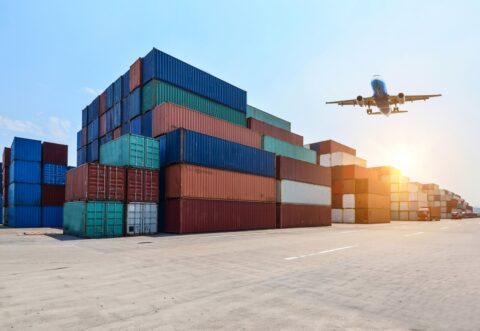What is the ITF and what are its functions?

Automatic translation
The International Transport Workers' Federation (ITF) is a worldwide federation with many affiliates and recognized as the world's leading transport regulation body. The organization works to improve the conditions of transport workers by uniting some 700 affiliates from 150 countries that may otherwise find themselves isolated, ensuring rights, equality and fairness when working at sea. The organization now has about 20 million working men and women around the world.
The ITF is headquartered in London with headquarters in Amman, Brussels, Nairobi, New Delhi, Ouagadougou, Rio de Janeiro, Singapore, Sydney and Tokyo.
Principles of work according to the ITF
According to the ITF memorandum, the following goals and operating principles are defined:
- promote respect for trade unions and human rights worldwide
- work for peace based on social justice and economic progress
- assistance to affiliated trade unions in protecting the interests of their members
- provision of research and information services to affiliates of the organization
- providing general assistance to transport workers in a difficult situation, including crewing
The ITF operates internationally and has significant negotiating and lobbying powers with international organizations and governments. Due to its size and status, the ITF can coordinate campaigns against multinational corporations and governments. And many of these campaigns have already yielded the desired results and led to changes for the better. Among the most significant and successful are the following:
- Won two collective bargaining agreements with UPS in Turkey.
- Recruited 4,540 new union members and activists, formed nine new unions and committees, and concluded five union recognition agreements and five collective bargaining agreements at UPS Cologne, Germany.
- Created new unions and entered into labor agreements for workers from Latin America in Argentina, Peru, Paraguay, Colombia and Ecuador.
- Created an active network of 16,808 members in 25 unions and five federations in seven countries in Latin America, Australia and Spain.
- As part of the Arab World Transport Union Development Program, regional ports and aviation networks have been built, and 14 new independent unions have been created to join the ITF.
- Recruited 4,954 new members through the implementation of a Sask-funded educational program in Mozambique and Angola, and signed 20 new collective bargaining agreements.
- Helped increase the number of women in the General Union of Transport Workers by 20 percent and their participation increased by 30 percent.
- A new office was built for the Gaza Bus Drivers Union (BDU) and the Palestinian General Transport Workers Union.
- We have spearheaded a campaign to end violence against women in the workplace and in communities with the 2013 ITF Guide to Action.
- Worked with the International Union of Food Workers (IUF) on a joint Catcher to Consumer campaign to combat illegal, unregulated and unreported fishing and to strengthen union influence on all workers in the fishing industry supply chain.
- Strengthened the influence of the Industrial Union of Marine Workers of Papua New Guinea (PNGMTWU) and helped it gain recognition and collective bargaining agreements in five companies.
At the ITF Congress in Singapore in October 2018, a plan was agreed to strengthen the authority of transport workers in all sections, regions and departments of the organization, as well as activities at the crewing level.

Workplace automation
With regard to automation and technological change in the workplace and beyond, Congress recognized that different solutions will be made for different sectors and regions. An ambitious and practical work program for solving the problems and managing the ITF's work is as follows:
- Expand and intensify the work of members of the organization in work and the trade union movement, nominating women and young transport workers to leading positions;
- Implement and support innovative campaigns that can have a decisive impact on the achievement of real wins by employees of multinational companies, in supply chains and crewing companies;
- Demand global and regional policies within a framework that will make the future of transport and the world economy fair and sustainable.